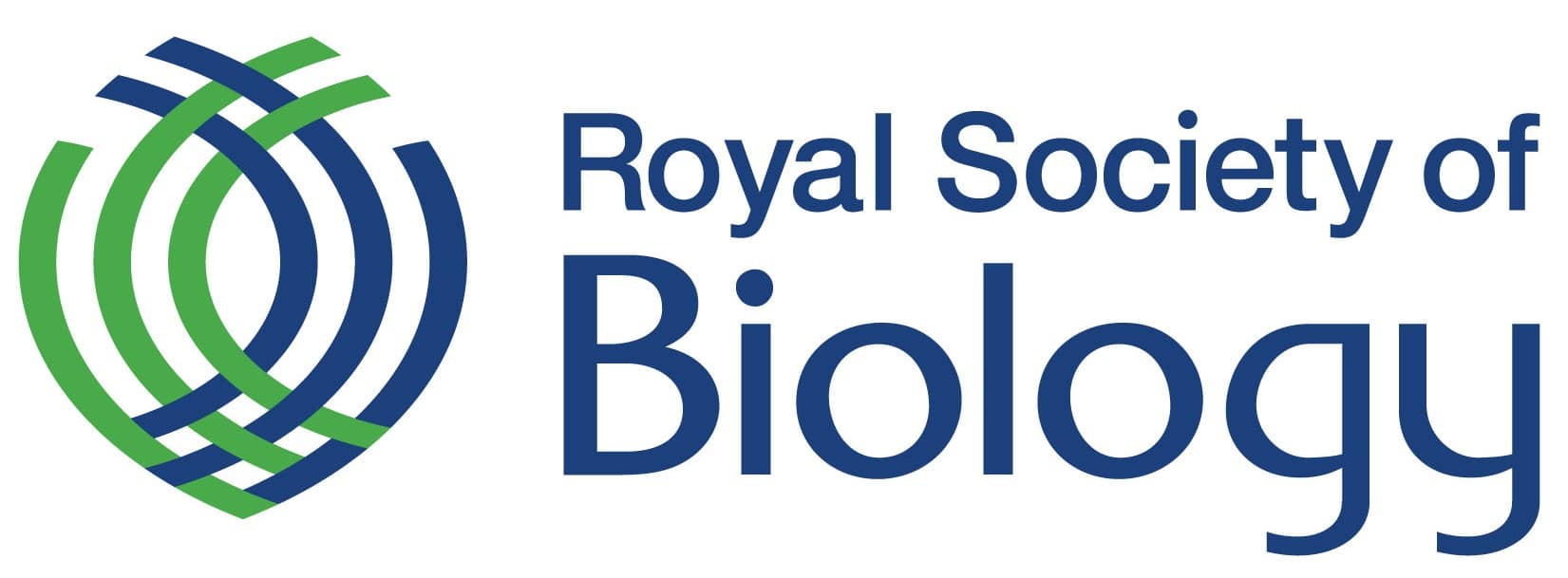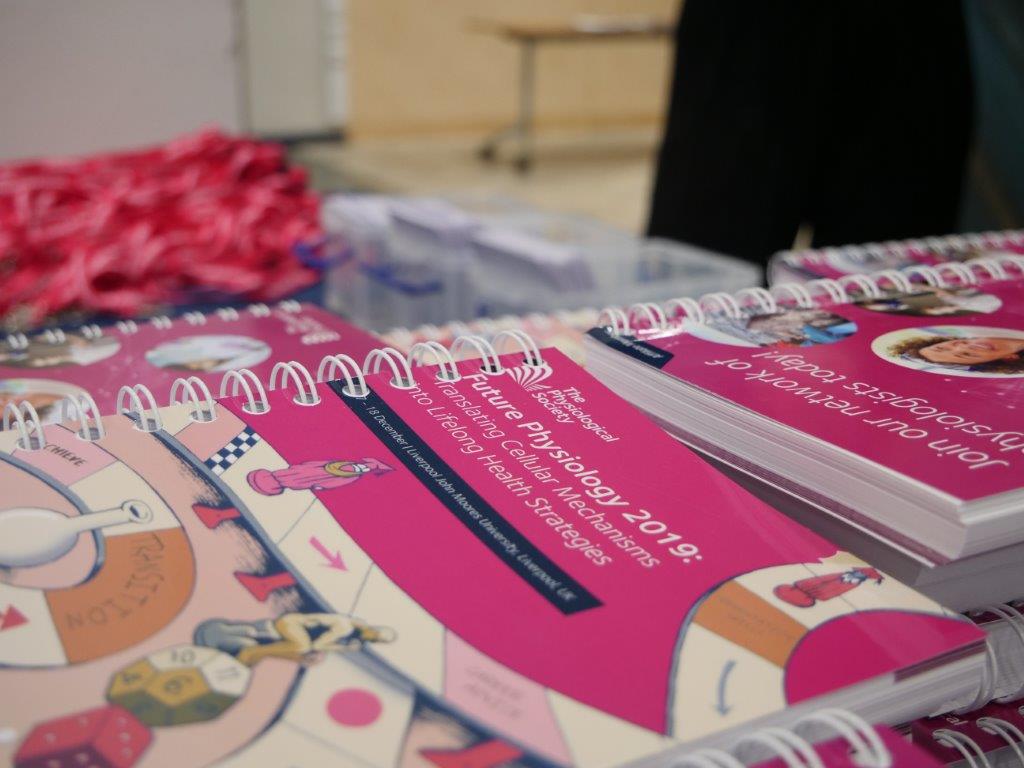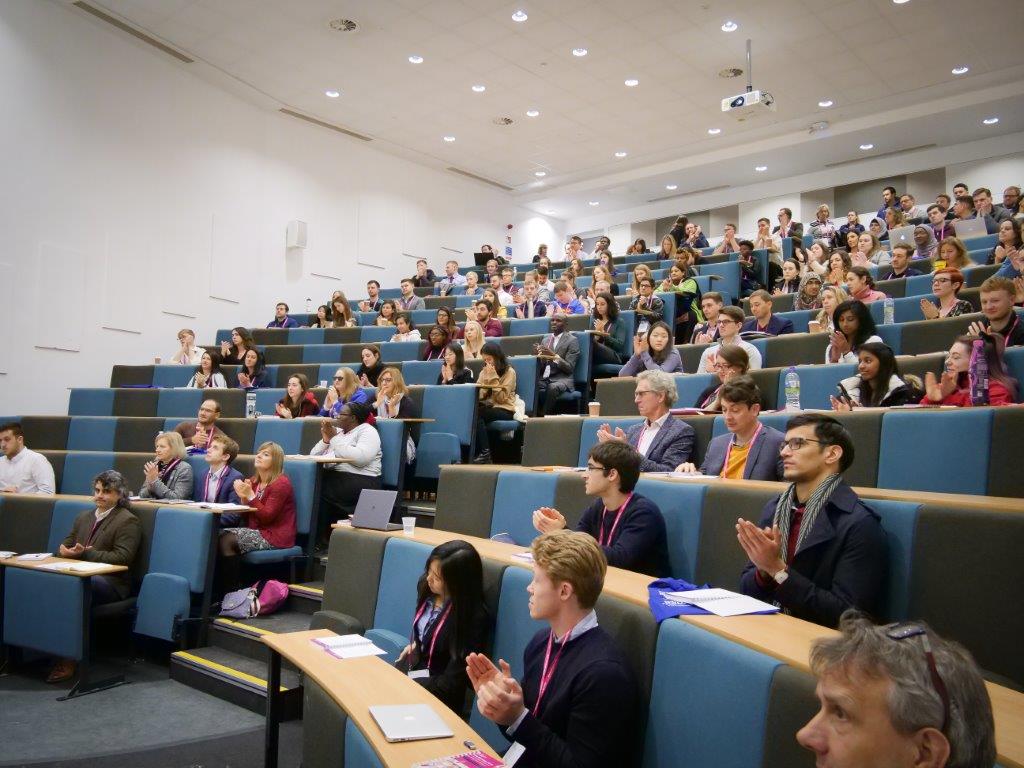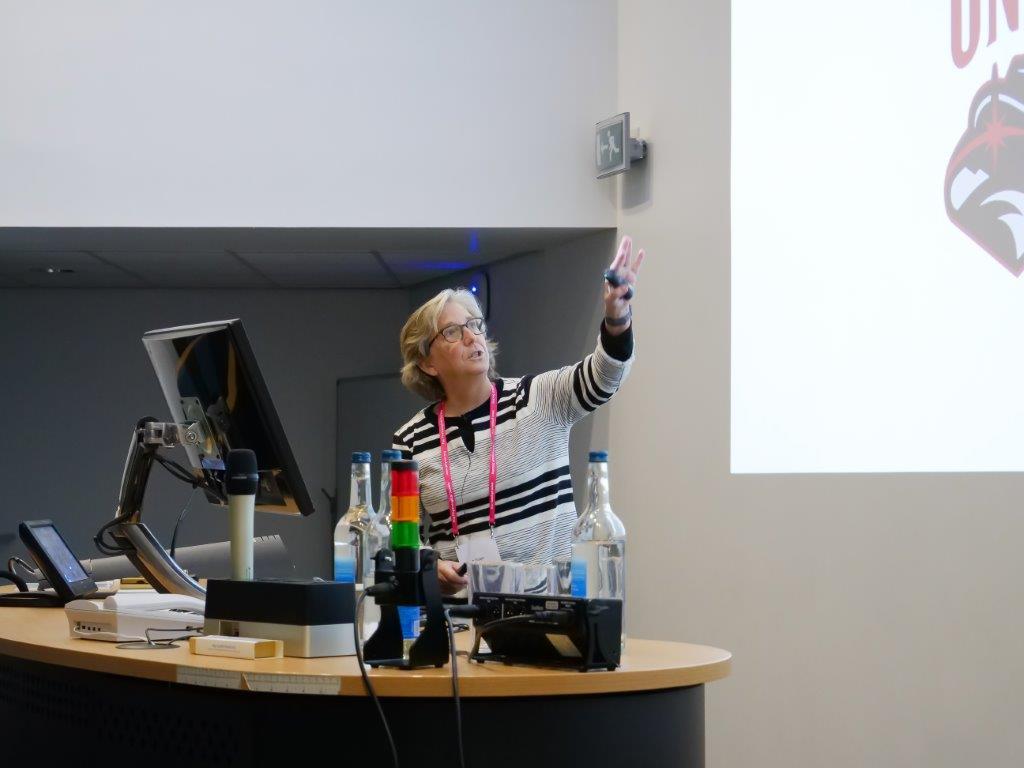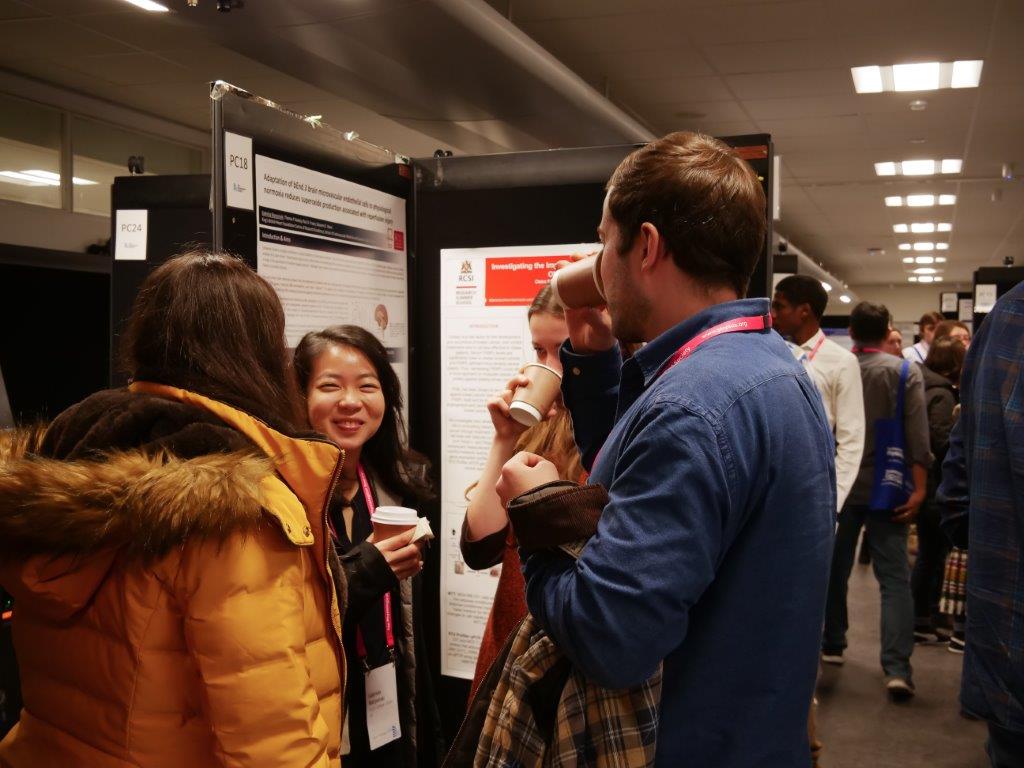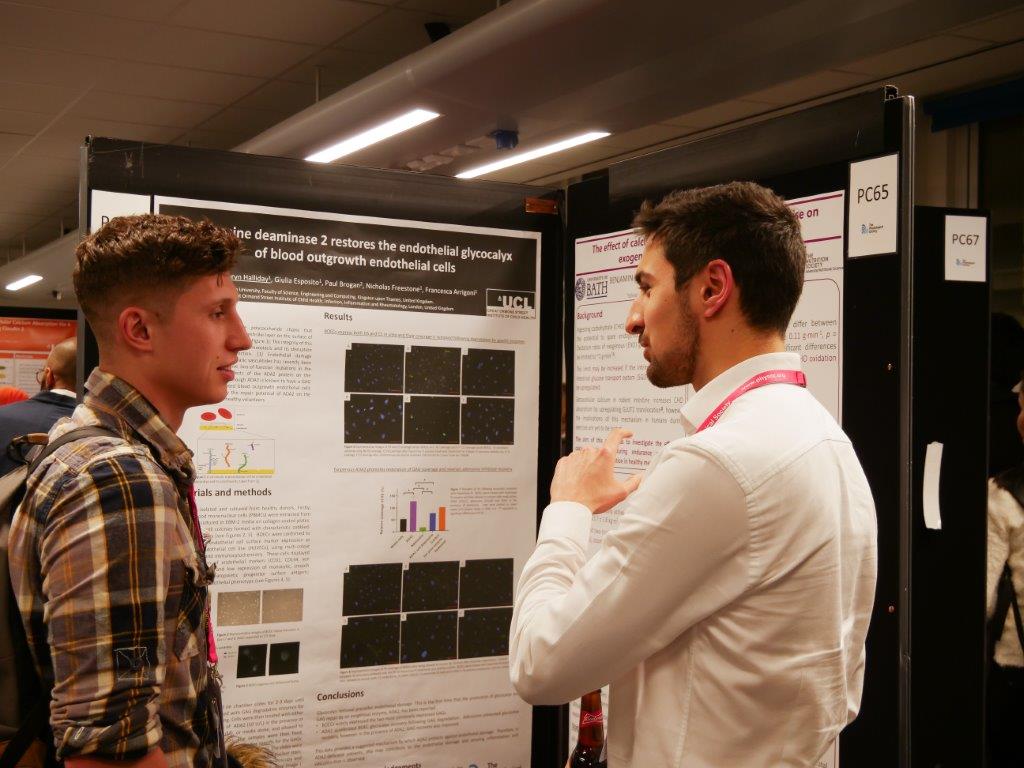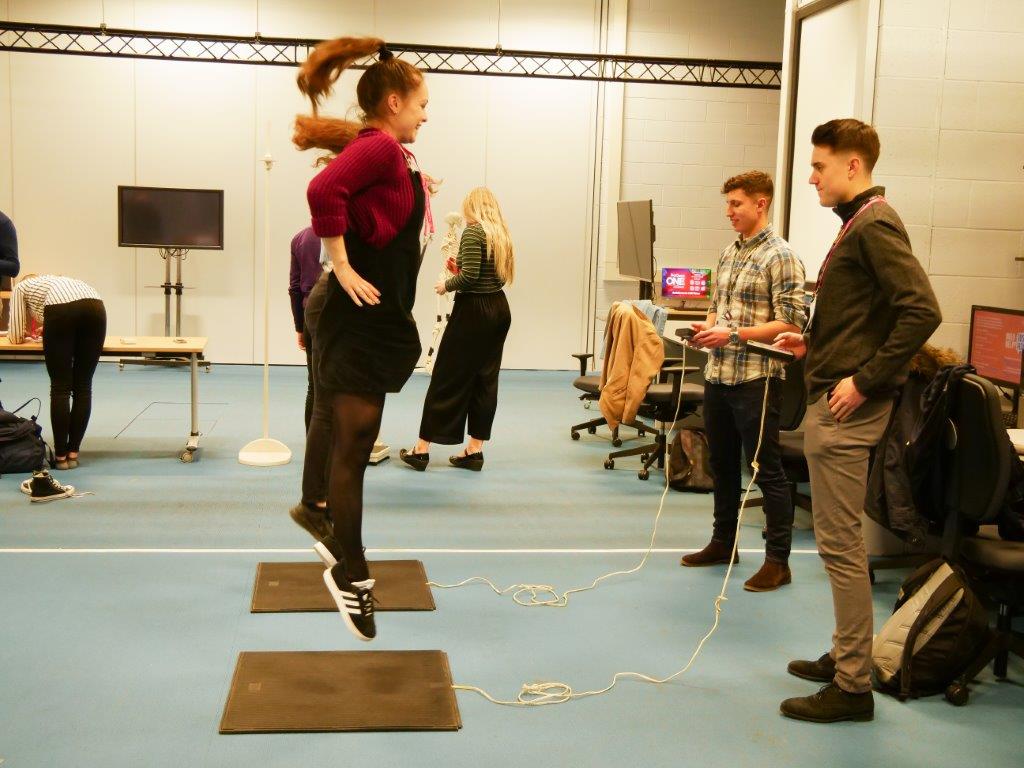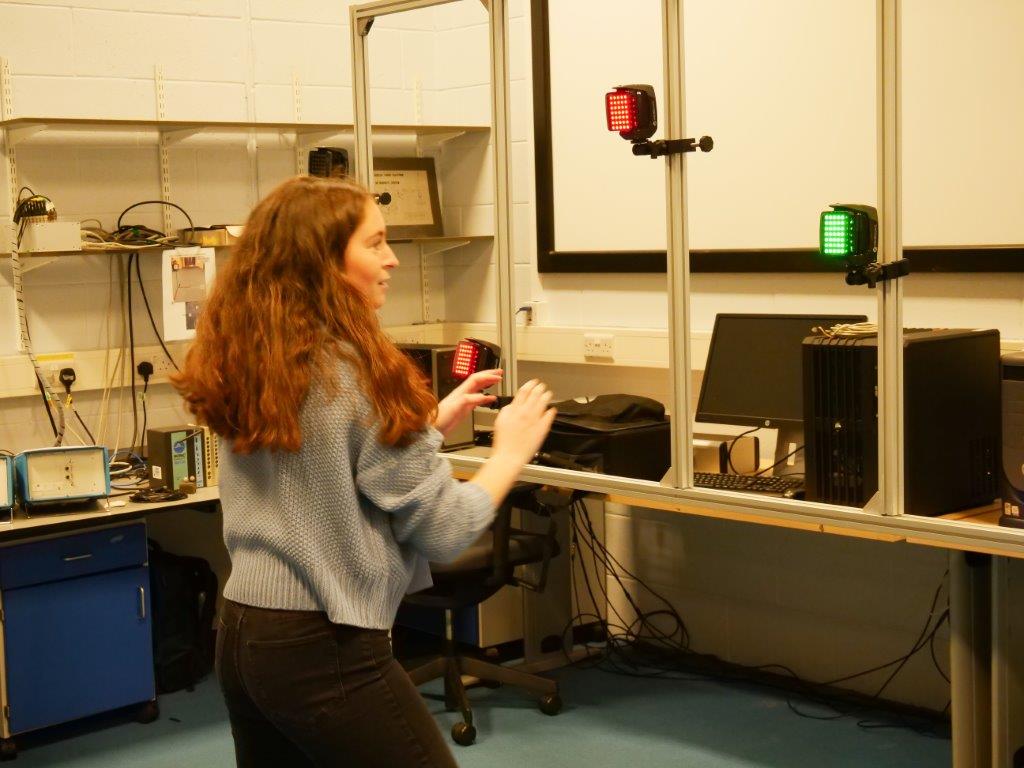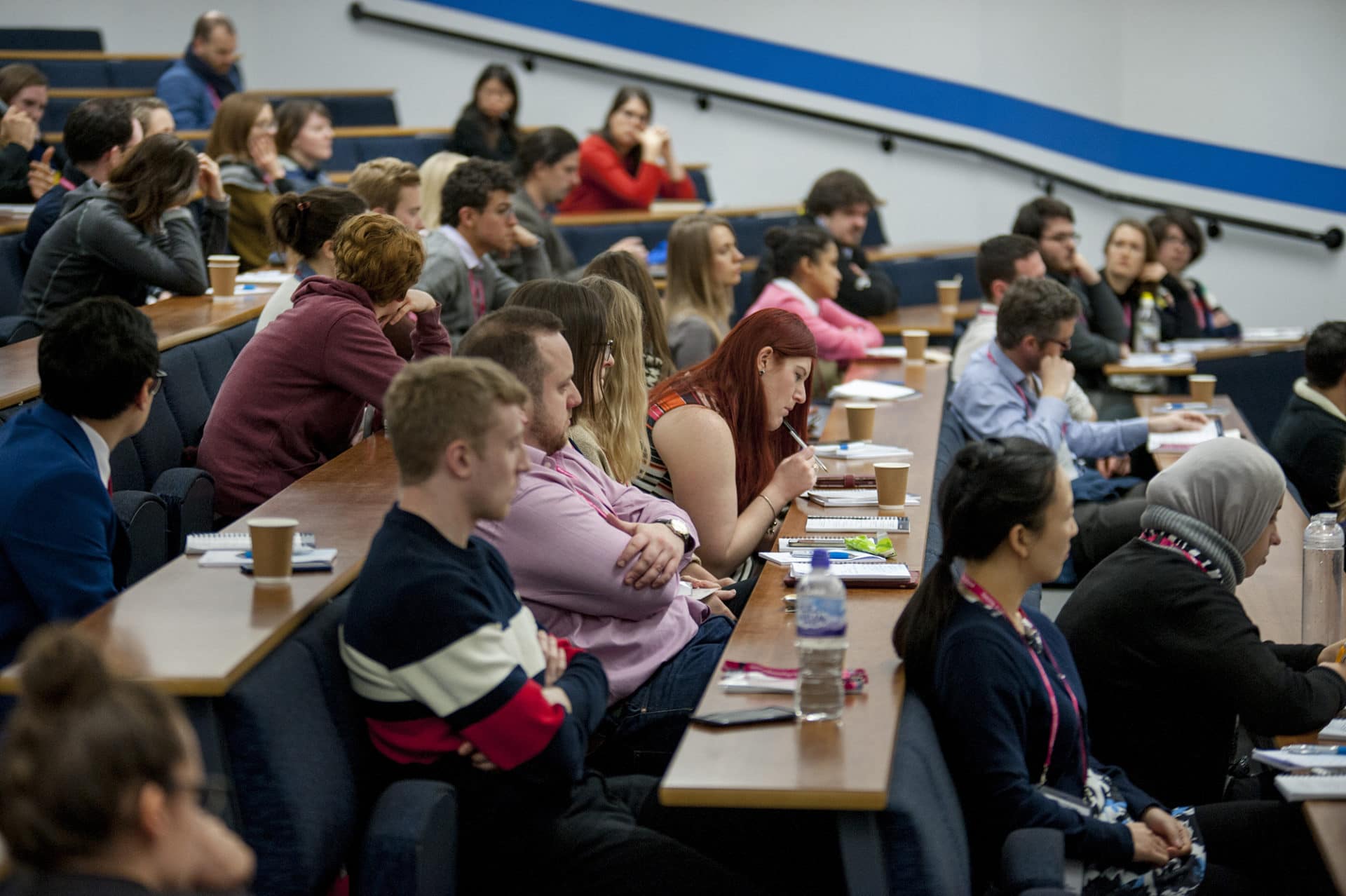
Our Future Physiology conferences are tailor made to give early career researchers the experience, renewed enthusiasm and networking opportunities to help you take the next steps in your career.
This 2019 topic was ‘Translating Cellular Mechanisms into Lifelong Health Strategies’:
Whilst modern medicine has gifted us with an increase in lifespan, physiologists must strive to help meet this with an increased health span. As researchers, our minds are often constrained to our own specific niches: fixated on certain genes, signalling pathways and cell types. However, humans are complex organisms where aging and age-related disease is often multifactorial. Developing physiologists who can collaborate and translate basic science to clinicians and policymakers to prevent, treat and intervene will be key to achieve extended health span.
Take a look at some of our event highlights!
Download a PDF of the programme here.
Session 1 talks
Chaired by Jonathan Jarvis and Jatin Burniston, Liverpool John Moores University, UK
- 09:00 SA01 Contemporary issues in an ageing society and ageing research
- Claire Stewart, Liverpool John Moores University, UK
- 09:45 SA02 The role of epigenetics in regulating ageing skeletal muscle
- Robert Seaborne, Queen Mary University of London, UK
Session 1 oral communications
Chaired by Jonathan Jarvis and Jatin Burniston, Liverpool John Moores University, UK
- 11:00 C01 Individual and combined genetic variations are associated with in vivo and in vitro muscle damage in humans: a genetic approach to elucidate the mechanisms underpinning the response to exercise-induced muscle damage
- Philipp Baumert, Technical University of Munich, Germany
- 11:15 C02 Single-Cell transcriptomic analysis revealed molecular signature of Pnmt-derived cardiomyocytes
- Tianyi Sun, University of Oxford, UK
- 11:30 C03 A transcriptomic insight into the mechanism underlying the decrease in atrial ICa-L in heart failure
- George Madders, University of Manchester, UK
- 11:45 C04 A proteomic insight into liver dysfunction and metabolism during obesity
- Ben Stocks, University of Copenhagen, Denmark
- 12:00 C05 Muscle adaptation induced by endurance activity involves changes to protein abundance that are regulated by protein degradation as well as protein synthesis.
- Stuart Hesketh, Liverpool John Moores University, UK
The role of media in public engagement: Nonsense or necessity?
Professor Greg Whyte OBE, Centre for Health and Human Performance Ltd, UK
Professor Greg Whyte OBE is an Olympian in modern pentathlon, and is a European and World Championship medalist. He is currently a Professor of Applied Sport and Exercise Science at Liverpool John Moores University and Director of Performance at the Centre for Health and Human Performance.
Professor Whyte’s impact on translating science to the public and media has been recognised nationally and he is well-known for his involvement in Comic Relief.
It is surprising how many scientists investigate a disease or societal health issue but have little to no contact with the frontline population, patients, clinicians and policy makers. Following the topic of Future Physiology 2019, Professor Whyte will deliver his workshop, ‘The Role of Media in Public Engagement: Nonsense or Necessity?’, to share his experiences and knowledge in the area of translatable research, collaboration and appropriate dissemination of research to clinicians, policy makers and the public.
Publishing for the first time
Sally Howells, The Physiological Society, UK
Sally Howells overseas the editorial operations and development of The Physiological Society’s journals and all other publishing-related matters including peer review, production, marketing and ethics. She has been in academic science publishing for over 12 years.
The workshop will cover the fundamentals of good peer review, including the types available, why people review for journals, what editors are looking for in a report and how they use them, as well as some tips on being a good reviewer.
It will also cover how to pick a good journal, how to write up your research for publication (giving editors what they want!), explore some of the important ethical considerations you should take into account when writing your paper and some lessons from the past on how not to present your data.
Sally will also briefly describe the various publishing career options available to scientists.
Session 2 talks
Chaired by Mark Viggars and Daniel Owens, Liverpool John Moores University, UK
- 14:00 SA03 Circadian rhythms and molecular clock mechanisms: Working with time to develop new health strategies for humans
- Karyn Esser, University of Florida, US
- 14:45 SA04 Physiological and structural changes in skeletal muscle and nerve-muscle interactions: the effects of ROS and ageing
- Natalie Pollock, University of Liverpool, UK
Session 2 oral communications
Chaired by Mark Viggars and Daniel Owens, Liverpool John Moores University, UK
- 16:00 C06 MicroRNA control of the circadian rhythm in heart rate
- Cali Anderson, University of Manchester, UK
- 16:15 C07 3D segmentation of the cardiac mitochondria and nuclei from the Greenland shark (somniosus microcephalus) insights into extreme longevity
- Pierre Delaroche, University of Manchester, UK
- 16:30 C08 The missing LINC to human healthy ageing: myonuclear architecture and mechanics in old age
- Ed Battey, King's College London, UK
- 16:45 C09 The impact of replicative ageing and dietary flavonoids on C2C12 muscle cell mitochondrial function
- Daniel Sadler, Liverpool John Moores University, UK
- 17:00 C10 Reduction in multiple cellular mechanisms during early replicatively aged C2C12 differentiation results in subsequent lack of myotube formation
- Alexander Brown, Liverpool John Moores University, UK
Session 3 talks
Chaired by Anton Wagenmakers and Matt Cocks, Liverpool John Moores University, UK
- 09:00 SA05 The role of DNA damage in vascular aging
- Anton Roks, Erasmus University MC, Netherlands
- 09:45 SA06 Life style related disease, ageing and cardiovascular impairments
- Lasse Gliemann, University of Copenhagen, Denmark
Session 3 oral communications
Chaired by Anton Wagenmakers and Matt Cocks, Liverpool John Moores University, UK
- 11:00 C11 Adipose tissue remodelling in response to obesity, exercise training and psychological stress
- Susan Ige, University of Reading, UK
- 11:15 C12 Fibre and sex specific differences in mitochondrial content and subcellular distribution and morphology of lipid droplets in skeletal muscle biopsies obtained from lean, obese and type 2 diabetes patients
- Myfanwy Macey, Liverpool John Moores University, UK
- 11:30 C13 Skeletal muscle weakness, atrophy, and abnormal blood flow response in an animal model of heart failure with preserved ejection (HFpEF)
- Ever Espino Gonzalez, University of Leeds, UK
- 11:45 C14 Evaluation of the effects of WISP-1 on cardiac fibrosis mediated by cardiac fibroblasts via MMPs and TIMPs
- Ze Li, University of Bristol, UK
- 12:00 C15 A combination of major histocompatibility complex (MHC) I overexpression and Type I interferon (IFN) signature induces profound mitochondrial dysfunction in human skeletal muscle myoblasts
- Anastasia Thoma, Manchester Metropolitan University, UK
Lifelong Health Stations-Practical Session
Our societies spend huge amounts on health care, both intentionally (e.g. hospitals) and inadvertently (e.g. transportation). But lifelong-health is important on an individual level, we cannot do day-to-day activities without being in good physical and mental shape. This practical workshop can help to build a clear picture of where your current health is and will help to identify potential future health risks.
During this workshop you will be able to discover your own well-being using a number of physiological measures such as waist circumference, BMI, blood pressure, resting heart rate, flexibility, reaction time, grip strength and lung capacity. There will also be some questionnaires to examine your overall health and psychological well-being such as Short Form – 36 and Subject Vitality Scale.
Post-doc challenges
Dr Emma Williams, EJW Solutions, UK
Ever wanted to ask a question about being a postdoc but were afraid to ask? Join us for an hour with the ‘postdoc agony aunt’ aka Dr Emma Williams. Emma is one of the authors of “What every postdoc needs to know” and the host of “I’m a postdoc get me out of here challenge”. She has been there, worn the lab coat and worked with postdocs for 20 years in the UK and further afield. Emma and her panel of postdocs will tackle some of those knotty postdoc issues before opening the session to the floor for a Q and A.
Session 4 oral communications
Chaired by Helen Jones and Katie Hesketh, Liverpool John Moores University, UK
- 13:45 C16 The effects of age and acute aerobic and resistance exercise on circulating T lymphocyte vitamin D receptor (VDR) expression in healthy males
- Hannah Lithgow, Edinburgh Napier University, UK
- 14:00 C17 Absence of an ageing-related increase in fibre type grouping in master athletes and non-athletes
- Guy Anselme Messa, Manchester Metropolitan University , UK
- 14:15 C18 Are older adults at greater risk of the adverse musculoskeletal consequences of physical inactivity?
- Juliette Norman, University of Liverpool, UK
- 14:30 C19 Comparison of two Home-Based HIIT protocols with ‘60HIIT’ eliciting greater health benefits in VO2peak compared to ‘30HIIT’
- Hannah Church, Liverpool John Moores University, UK
- 14:45 C20 Can a weekly multi-modal exercise class preserve motor and non-motor function in Parkinson’s?
- Anna Ferrusola-Pastrana , University of Kent, UK
Session 4 talks
Chaired by Helen Jones and Katie Hesketh, Liverpool John Moores University, UK
- 15:15 SA07 Lifelong aerobic exercise, exercise factors, and exosomes
- Mats Nilsson, McMaster University, Canada
- 16:00 SA08 Sedentary behaviour: A behavioural target in the prevention and management of chronic disease
- Charlotte Edwardson, University of Leicester, UK
Support
This event was approved by the Royal Society of Biology for purposes of Continuous Professional Development (CPD), this event could be counted as 57 CPD points (equivalent to one year of CPD).
